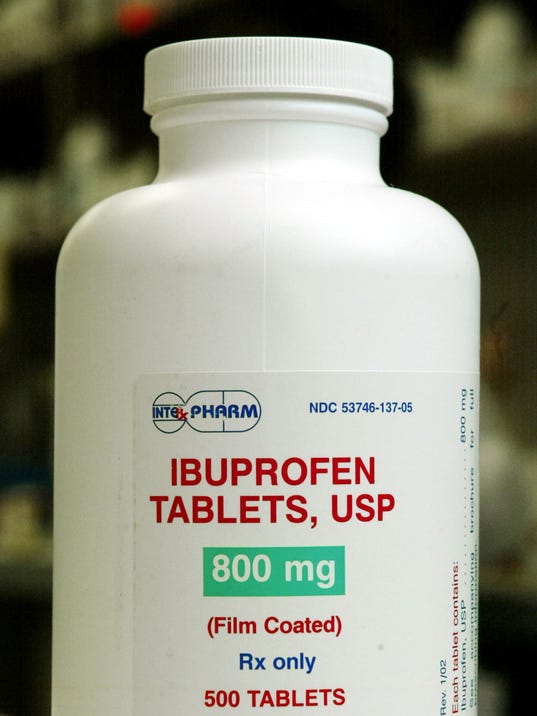Researchers are still a long way from finding the fountain of youth, but new studies suggest that two long-used medications might have anti-aging benefits.
For decades, scientists have tackled diseases of aging, like cancer and heart disease, but in recent years some have begun to express confidence that they will find a treatment for aging itself.
In a study released Wednesday in Science Translational Medicine, a medication similar to the transplant drug rapamycin was shown to boost the immune system of older people getting a flu vaccine. Vaccines generally becomes less effective in people over 65 because their immune systems don't respond well; taking a rapamycin-like drug for six weeks improved the flu vaccine's effectiveness by 20%, according to the study.
 |
| Doses of ibuprofen comparable to what people use extended the lifespan of worms and flies.(Photo: Alex Wong, Getty Images) |
The trial was the first to look at whether the age-defying benefits of the drug seen in other animals might work in people, said Joan Mannick, executive director of the New Indications Unit of the Novartis Institutes for BioMedical Research, a division of the pharmaceutical giant Novartis.
A second study found that ibuprofen comparable to what people use extended the lifespan of yeast, worms and flies.
It's too early to know whether the drug will have the same effect in people, how long it would need to be taken or at what doses, researchers said. But "it's exciting because we know (ibuprofen) can be used relatively safely in humans," said Matt Kaeberlein, an expert in the biology of aging at the University of Washington, who worked on the study.Read the rest of the story HERE.
If you like what you see, please "Like" us on Facebook either here or here. Please follow us on Twitter here.



No comments:
Post a Comment